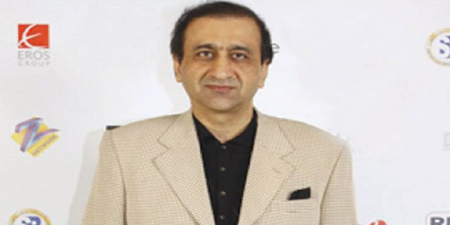SAMDEN protests actions against Mir Shakil-ur-Rahman and The Wire
JournalismPakistan.com | Published: 4 April 2020
Join our WhatsApp channel
Editors and media professionals in South Asia protested recent actions against media figures Mir Shakil-ur-Rahman and The Wire. They emphasized a troubling trend of harassment against journalists in the region.Summary
NEW DELHI—Leading editors and media professionals from South Asia on Saturday protested actions against the media in Pakistan and India—the detention of Pakistani editor and publisher Mir Shakil-ur-Rahman in Lahore and legal action against the independent Indian online portal, The Wire.
“The preoccupation of the world public and opinion makers with the COVID-19 pandemic has made it easier for those who want to try and gag critics in the media,” said the South Asia Media Defenders Network (SAMDEN), which is anchored by co-convenors from Bangladesh, Nepal, Pakistan, and Sri Lanka.
While the harassment and imprisonment of journalists have been a distressing trend in all the countries of South Asia over the past few years, SAMDEN said, “we have seen a sudden escalation in such actions over the past few weeks.” It described the actions against Rahman and The Wire as “representative of a trend across the region.”
Mir Shakilur Rahman is the chief editor and proprietor of Pakistan’s largest media group, encompassing The News, Jang and Geo TV. The action against him is based on a 34-year old property transaction.
Pakistan’s National Accountability Bureau detained Rahman, in violation of its own rules that do not allow arrest at the stage of verification. “The authorities appear to be dragging this case out to teach the media a lesson,” SAMDEN said.
Rahman’s arrest and detention follow a string of attacks on him and his media group and its journalists by the Pakistani authorities and non-state elements over the past years. Organizations such as Amnesty International, Committee to Protect Journalists, Reporters without Borders, Human Rights Watch and Association of International Broadcasters have denounced this latest action.
Urgent appeals have been filed for his release to the UN Working Group on Arbitrary Detention and the UN Special Rapporteur on the Promotion and Protection of the Right to Freedom of Opinion and Expression.
Editors of The Wire learnt of the case against their organization through social media. The First Information Report (FIR) registered by the police in Lucknow says that the online news organization reported that Uttar Pradesh Chief Minister Adityanath attended a public religious event in Ayodhya on March 25, after Prime Minister Modi had announced a national lockdown to counter the Coronavirus crisis.
“This report was factually correct and a matter of record, yet the police has made it the basis for a criminal case,” SAMDEN commented.
The Wire is one of a handful of India’s robust media voices. SAMDEN noted that the case came at a time when the central government has been trying to restrict media coverage of the COVID-19 pandemic.
The actions come at a time of heightened concern that rulers could use the COVID-19 crisis to suppress the news media, said SAMDEN, “at a time when South Asia and the world are facing an unprecedented public health challenge.”
“Such cases undermine the media at a time that it needs to be strengthened.”
SAMDEN, founded in 2017, has a membership of over 50 media professionals, including editors, reporters, right to information specialists, bloggers, and authors from across South Asia, Australia, and the UK. It is anchored in the Commonwealth Human Rights Initiative (CHRI).
Its co-convenors are Kanak Mani Dixit, Founder Editor of Himal magazine, Nepal, Mahfuz Anam, Publisher and Editor of the Daily Star of Bangladesh, Kumar Lopez, Executive Director of the Sri Lanka Press Institute, Beena Sarwar, Boston-based editor and filmmaker from Pakistan, and Sanjoy Hazarika, writer, columnist and international director of CHRI.
KEY POINTS:
- Protests against actions against Mir Shakil-ur-Rahman and The Wire.
- SAMDEN leads the advocacy for media freedom in South Asia.
- Rahman's detention linked to a decades-old property transaction.
- The Wire faces legal action for reporting on a public figure's event.
- Concerns raised over media suppression during the COVID-19 pandemic.

























